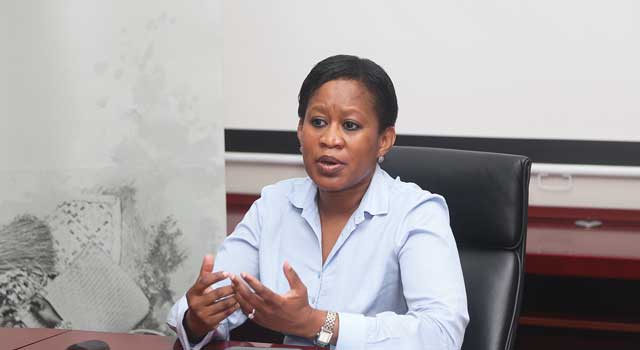- Econet gave MTN unsolicited offer
- BPOPF was never consulted on Mascom sale
- Strive Masiyiwa wants control of Botswana telecommunications
- BPOPF wants Mascom listed on the BSE
KEABETSWE NEWEL
The third largest pension fund in Africa, the Botswana Public Officers Pension Fund (BPOPF) has moved to halt the sale of 53 percent shares in Mascom Wireless to billionaire Strive Masiyiwa after it turned out that BPOPF, the second largest shareholder in Mascom was not given its pre-emptive rights to purchase the shares, this publication has established.
BPOPF Principal Officer, Boitumelo Molefe revealed that MTN, South Africa’s telecommunications behemoth, received an unsolicited offer from Econet, a company owned by Zimbabwean billionaire Strive Masiyiwa.
“BPOPF was neither given priority nor consulted prior to this. It was purely a discussion between MTN and Econet,” she said, adding that BPOPF was denied its pre-emptive rights.
It is common practice that before any shareholder offloads shares in a company, fellow shareholders are first given an opportunity to up their stake, of which if they are not interested, an offer is made to third parties. According to Molefe, MTN seems to have agreed to the Econet offer before consulting BPOPF, which is against common practice.
Molefe said as it stands, BPOPF has now been informed of the potential transaction by MTN and that the Fund is considering its options in terms of the partnership agreement at Mascom.
“The BPOPF board has considered the matter and discussions between the shareholders (BPOPF and MTN) are ongoing,” she revealed.
BPOPF owns a 40 percent stake in Mascom Wireless, while MTN has a 53 percent controlling stake. The remaining 7 percent is held by Econet Joint Venture (Based in Mauritius), which is in partnership with Kagiso Mmusi, a local entrepreneur. These shares however are not directly held, they are owned through an investment vehicle called DECI Investments. MTN had in early March this year, agreed to sell 53 percent of its shares in Mascom for $300 million, an equivalent of over P3.1 billion. The sale would hike Econet’s shares to 60 percent.
Econet, in early 2017, wanted to dispose of its 7 percent stake in Mascom, after it was established that the company was in dire need of cash. Then an offer was made to BPOPF by the embattled private equity firm, Capital Management Botswana (CMB) for BPOPF to purchase the 7 percent at a price of $50 million, an equivalent of around P525 million, as per the 2017 exchange rates. At that time Econet Group ran into cash problems hence the plan to dispose of its shares. The company was reportedly looking to issue 1 082 088 944 ordinary shares and 263 050 614 class A shares in a quest to raise around US$130 million to service its foreign debt.
Molefe rejected the offer, which was said to have been overpriced. Fast forward to 2019, the same company is willing to cough up P3.1 billion to take up 53 percent in Mascom. Masiyiwa has always had a hand in Botswana’s telecommunications sector. He is the original founder of Mascom during the 90s, but he later disposed of the bulk of his shares. Should the deal go through, he will be the largest shareholder in a company valued at over P5 billion, with over a quarter of the local market share.
Early 2017, Botswana Power Corporation (BPC) struck a deal with Liquid Telecom, a company owned by Masiyiwa, to establish a wholesale telecommunications company. BPC owns and operates a vast optic fibre network. Then BPC said this optic fibre network has surplus capacity which can be utilized commercially in the Botswana telecommunications market. Government has since cancelled the deal after Botswana Fibre Network (BoFiNet) and Botswana Telecommunications Corporations questioned the awarding of such a lucrative deal to Liquid Telecom to the detriment of local companies.
Molefe believes that the board will decide whether or not to take up shares in Mascom. However she stressed that Mascom is a mature company and the BPOPF would support a public listing as it would be positive for Batswana and the local capital market. She believes that the BPOPF should invest in companies, develop them and once they are developed they should be publicly listed so that Batswana benefit from such.




